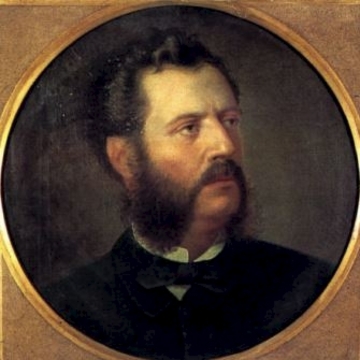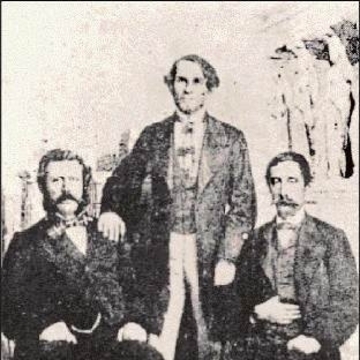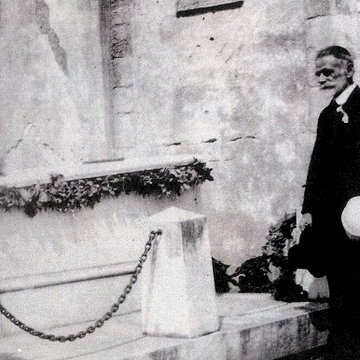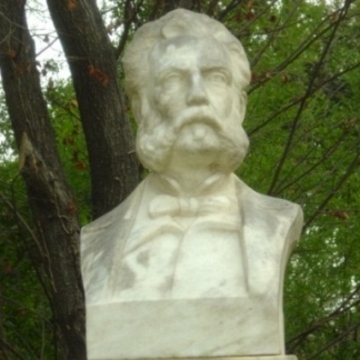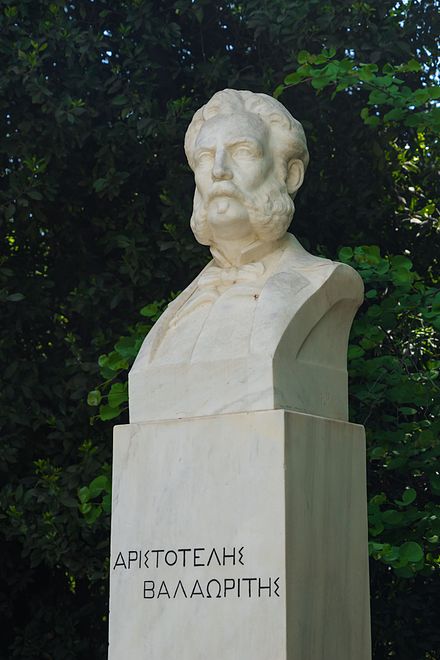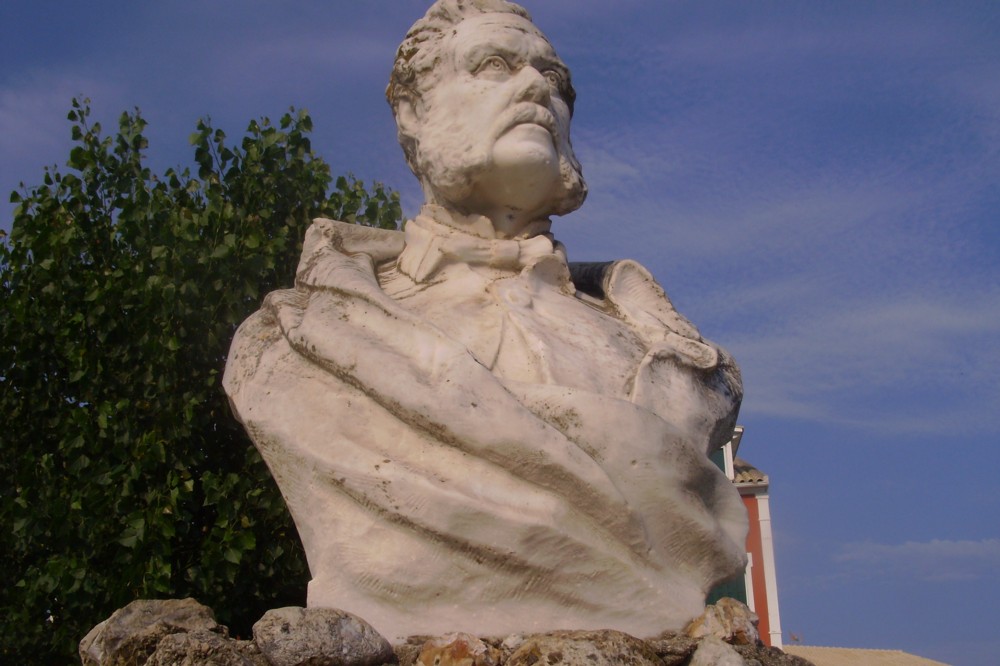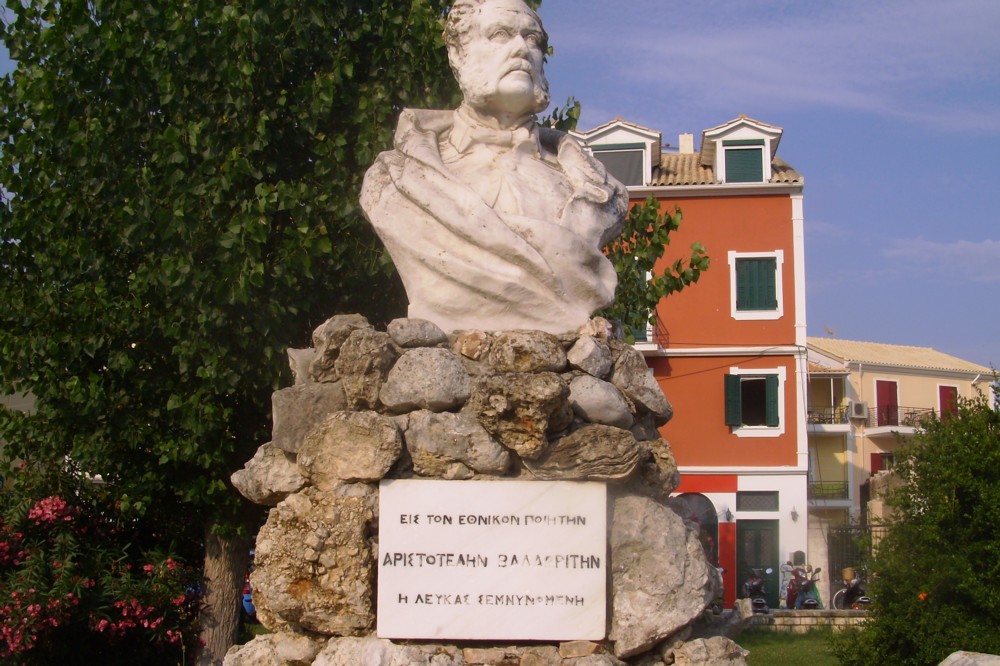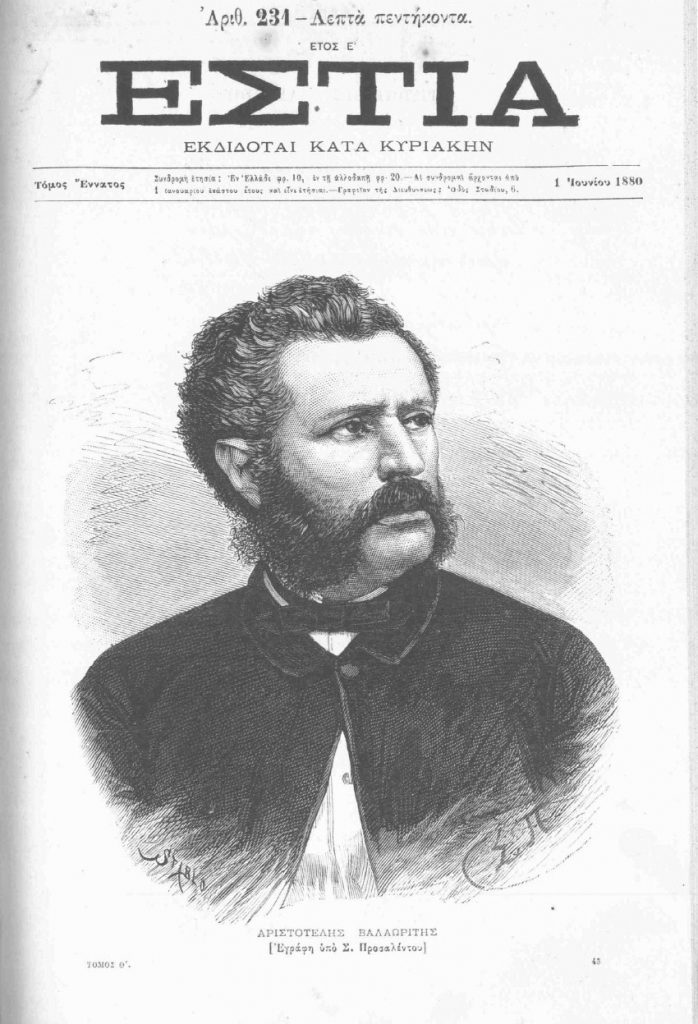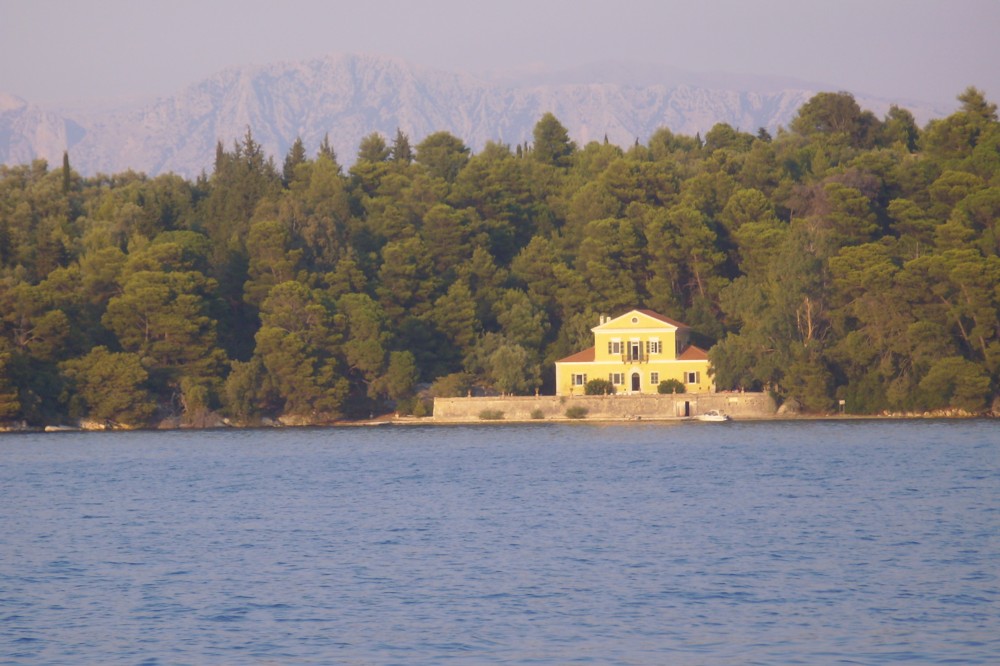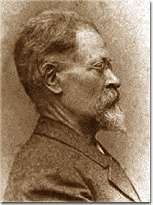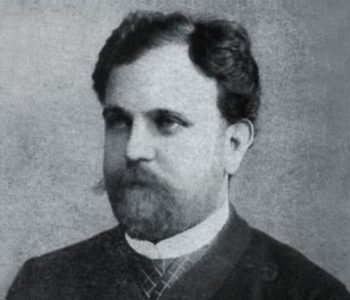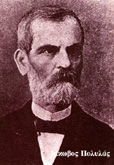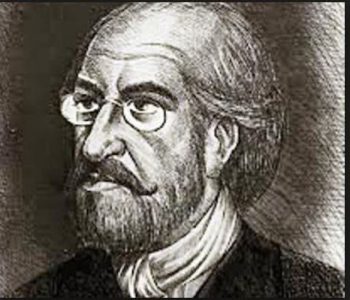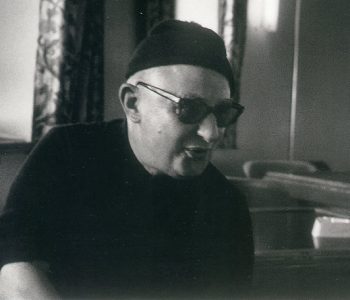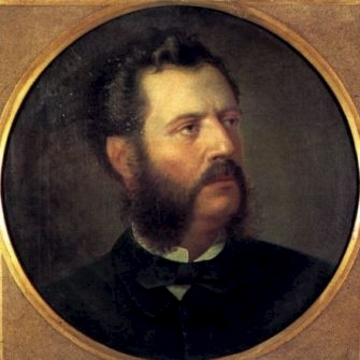
Author: Valaoritis, Aristotelis Valaoritis
Date of Birth: 1824, Lefkada
Gender: Male
Biography: Aristotelis Valaoritis was born in Lefkada in 1824, the first-born son of Senator John Valaoritis and of the Kefallinian noblewoman Anastasia of the Tipaldus-Forrest family. He lived in Lefkada until his childhood in 1838, when he settled in Corfu to study at the Ionian Academy as an intern with Hellenist I. Economidis. He is currently visiting Greece and Italy, where in 1842 he met his later father-in-law, the scholar Emilios Typaldos. He completed his studies in Geneva and in 1844 he was in Paris to study law. He returned to Lefkada in 1846 and continued his law studies at the University of Pisa. In Venice, in 1847, he was arrested for anti-Austrian activity, released by intervention of K. Tipaldos and deported to Naples. He completed his studies at Pisa in 1848, where as a student he participated in the student movement in favor of Italian liberation. In 1848 he was declared a Doctor of Law at the University of Pisa. He returns to Lefkada but in the following years he makes several trips to Italy. In 1852, in Venice, he marries Eloisia Typaldou-Pretenteri and since 1853 the couple has settled permanently in Lefkada. The two years of 1855-56 are marked by a series of family deaths: the first child, Maria, who dies in 1855 at the age of two (his second daughter, also Maria, dies in 1866, and the third, Nathalia in 1875 in Venice), of his father and mother, both of whom died shortly afterwards in 1856. Ten years after his first poetic appearance (1847 publication of “Lyrics”), in 1857, we have the “Memorials”. In the same year he was elected for the first time a Member of Parliament from Lefkada of Ionian Islands. There, in the Parliament of Corfu, he learns of the news of the death of Dionysios Solomos and adds to his eleventh poems of “Memorials” a poem written for Solomos, “The laurel and the nightingale”. His political career ended in 1868. The departure of Valaoritis from the parliamentary arena is accompanied by a case of a use of force during a House meeting against two members of the Voulgaris ruling party, the brothers Charalambou and Georgiou Iakovatou. He resigned from Parliament and, in the May 1869 election, did not want to run. He stayed on the island of Madouri. He will live there until the end of his life. An important milestone in his life is the period from the end of 1871, when the University commissioned him to compose a poem to unveil the statue of Patriarch Gregory V. However, the proclamation of the poem “Statue of the memorable Gregoriou V, Patriarch of Constantinople” a few months later, on March 25, 1872, is symbolically identical to the moment of the official and national recognition of Valaoritis as a “national poet”.
Selected literature
Chronology of Aristotelis Valaoritis
1824 | Birth in Lefkada in 1824, the first-born son of Senator John Valaoritis and of the Kefallinian noblewoman Anastasia of the Tipaldus-Forrest family. | ||
1830 | Attendance at Lefkada High School (-1837). | ||
1837 | Graduation from Lefkada High School. | ||
1838-1841 | Studying at the Ionian Academy under the tutelage of K. Asopios. | ||
1842 | Visit to Greece and Italy. Meet Emilios Typaldos. In Geneva for studies. | ||
1844 | Completion of his studies in Geneva. Law lessons in Paris (-1846). | ||
1846 | Continuing law studies at the University of Pisa. | ||
1847 | Publication of the “Lyrics”. Arrest for revolutionary, anti-Austrian action (Venice). | ||
1848 | At the University of Pisa he becomes the leader of Greek students who wish to take part in the uprisings in Italy. Ph.D. of Law (Pisa). | ||
1852 | “Dead Ode”, authoring and publishing. Marriage to Εloisia Am. Typaldou-Pretenteri in Venice. | ||
1853 | Installation in Lefkada. | ||
1854 | Participation in the uprising in Epirus. Conflict with English Commissioner George Ward. Self-contained for a year in Venice. | ||
1855 | Birth of his son, John (Nanos). He writes “Psychosavvato”. | ||
1856 | Death of his parents. | ||
1857 | The Memorials are published in Corfu. Songs by Aristotelous Balauritou Lefkadiou (Corfu), where the poem “”The laurel and the nightingale” about Dionysios Solomos. Deputy of Lefkada in the Ionian Parliament. | ||
1859 | Kyra Frosini, To simantron (Corfu). | ||
1866 | Completion of Diakos‘s writing in May. He writes “Rooted Tree” and “Astrapogiannos”. | ||
1867 | Athanasios Diakos, Astrapogiannos (1st ed.). [https://www.youtube.com/watch?v=iIgCivk8ros (excerpt from the movie “Astrapogiannos”) The well-known Greek film “The Astrapogiannos” starring Nikos Kourkoulos is based on the story of armatolos Astrapogianos of Aristotelis Valaoritis. The film may be played in another era, but the epic poem by Valaoritis is dedicated to the 18th century armatolos who ruled over Dorida and was glorified by the enslaved Greeks as a liberator.]. | ||
1868 | Poems, edited by Pavlos Lambros. Re-election as Member of Parliament. An episode in the House of Representatives. | ||
1869 | His permanently withdrawn from politics. Final installation in Madouri. | ||
1872 | The proclamation of the poem “Statue of the memorable Gregoriou V, Patriarch of Constantinople”. | ||
1879 | Start writing “Fotinos”. Death on July 24 from a heart attack. |
